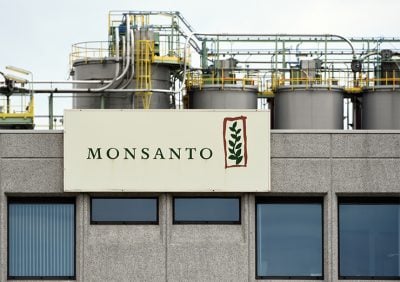Environmental and Public Interest Groups Demand EPA Revoke Monsanto’s License to Pollute
Groups deliver 149,559 petitions as EPA considers extending glyphosate registration

Today, environmental and consumer organizations are delivering more than 149,000 public comments to the Environmental Protection Agency advocating for a ban on glyphosate, aka Monsanto’s RoundUp, which is linked to cancer. The EPA is collecting public comments until July 5th for glyphosate’s proposed interim registration review, which could allow glyphosate to be used in the U.S. for another 15 years.
“The science is clear about glyphosate. This dangerous herbicide causes serious health risks, including cancer, and threatens our environment,” said Jason Davidson with Friends of the Earth.“EPA must do its job and ban this toxic pesticide instead of prioritizing corporate profits.”
Monsanto (now owned by Bayer (BAYRY), made $4.8 billion in revenue from glyphosate sales in 2015. The EPA claims that glyphosate does not cause cancer, ignoring the United Nations and California’s Office of Health Hazard Assessment, both of which have classified the herbicide as linked to cancer. However, EPA’s Office of Research and Development determined that the Office of Pesticide Programs did not follow proper protocol in its evaluation of glyphosate. EPA included Monsanto-funded studies in its evaluation of the chemical and has a history of collusion with industry.
“EPA is getting the science wrong on glyphosate, and needs to listen to international agencies and peer-reviewed literature on the dangers posed by widespread use of this herbicide,” said Drew Toher, community resource and policy director at Beyond Pesticides. “While continuing to pressure EPA, we encourage advocates to get active in their community, and work with their local elected officials towards organic policies that stop glyphosate and other toxic pesticides like it.”
“No company’s profits are more important than children’s health and the health of our fragile ecosystems. The EPA must uphold its mission and ban glyphosate,” said Brandy Doyle with CREDO Action.
“It’s time for the EPA to acknowledge that glyphosate, which is never used alone, if reapproved, will continue in the form of glyphosate herbicides, to contaminate our tap water, breast milk, baby food, formulas, cereals, thousands of food types, and cotton products,” said Zen Honeycutt, executive director, Moms Across America. “It will continue to destroy soil quality, which contributes to climate change, the decline of marine and wildlife and the environment. In short, the only way the EPA can do its job, is to revoke it’s license.”
“Getting cancers like non-Hodgkin lymphoma shouldn’t be a condition of employment in agriculture or landscaping—or a risk of using a weedkiller at home,” said Alexis Baden-Mayer, political director of the Organic Consumers Association. “It’s time for the EPA to stand up to Monsanto-Bayer and protect farmers, farm workers, lawn care workers and consumers. If Trump’s EPA chooses to ignore the science, Congress should step in.”
“It is not enough for companies to offer some products that are organic to consumers who are willing to pay for them. We need the EPA to protect all consumers from toxins in foods. And we need to protect our pollinators, farm workers, and the environment, so we can ensure that future generations have safe and healthy foods,” said Todd Larsen, executive co-director, Green America.
*
Note to readers: please click the share buttons above or below. Forward this article to your email lists. Crosspost on your blog site, internet forums. etc.
Featured image is from New Eastern Outlook

